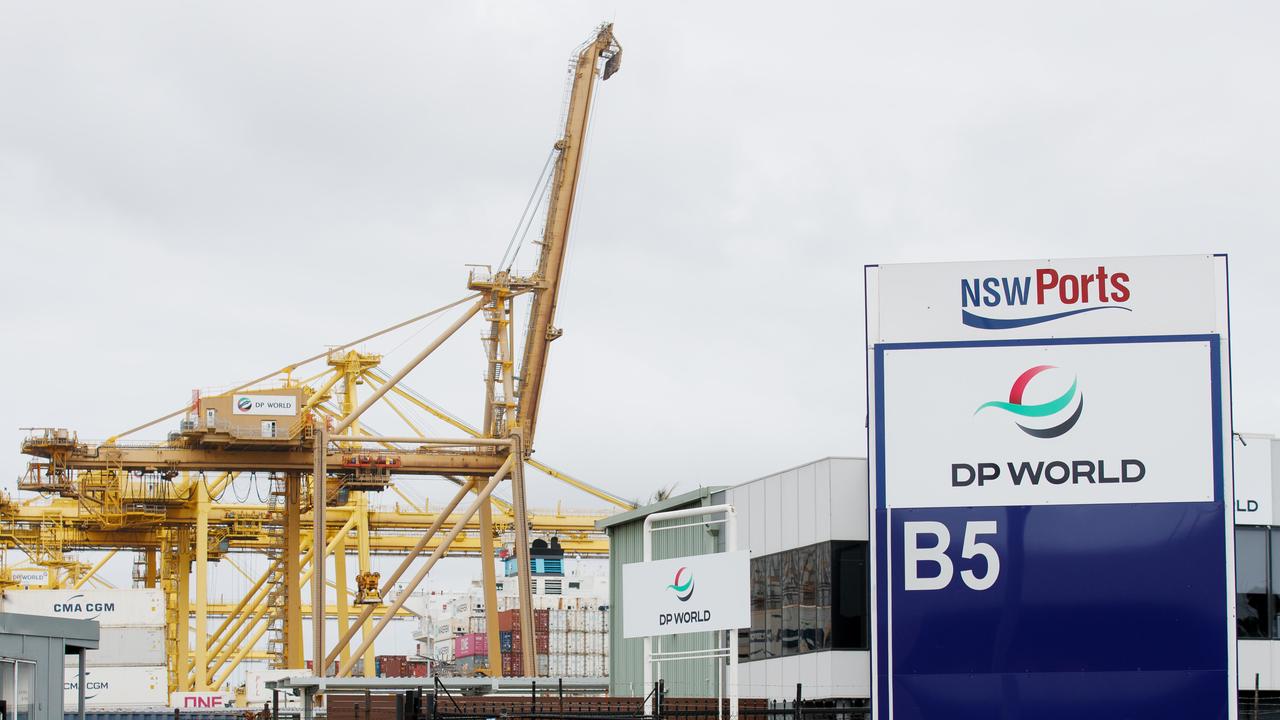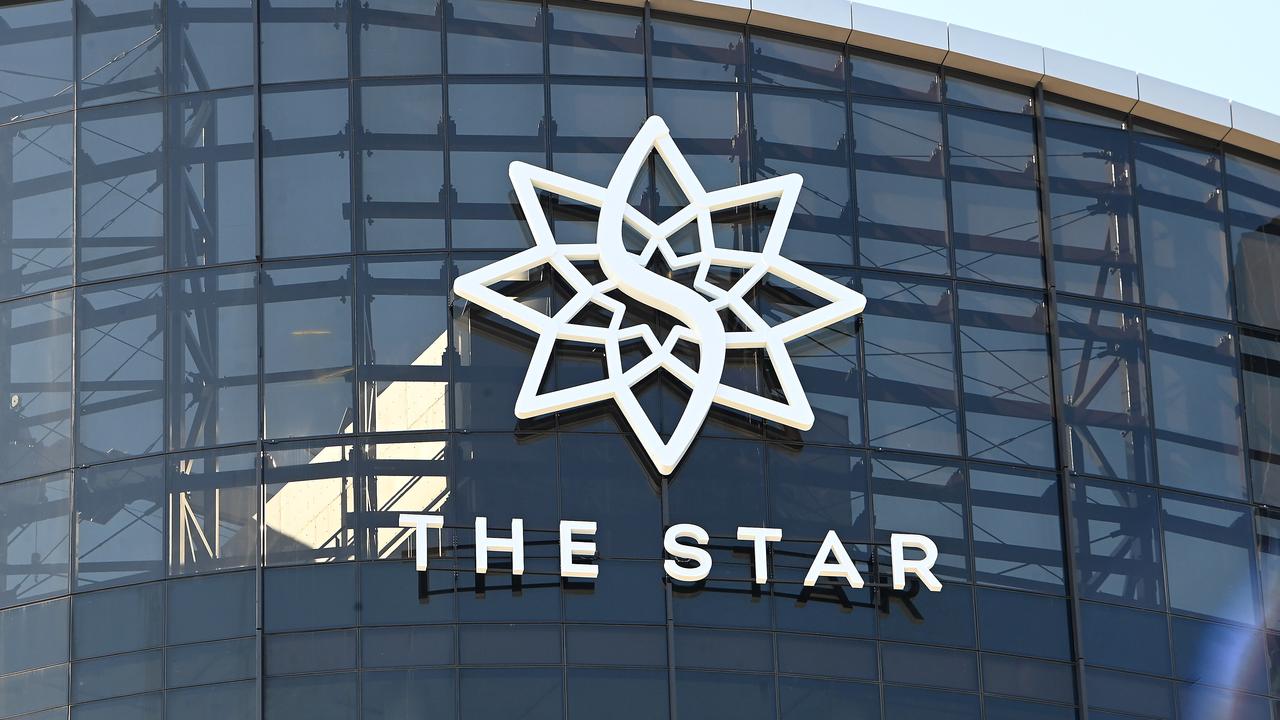For Myer, Solomon Lew’s Premier merger now hinges on a question of fairness
Myer shareholders will now be asking what they are really buying in the $800m-plus merger with Solomon Lew’s retail brands.
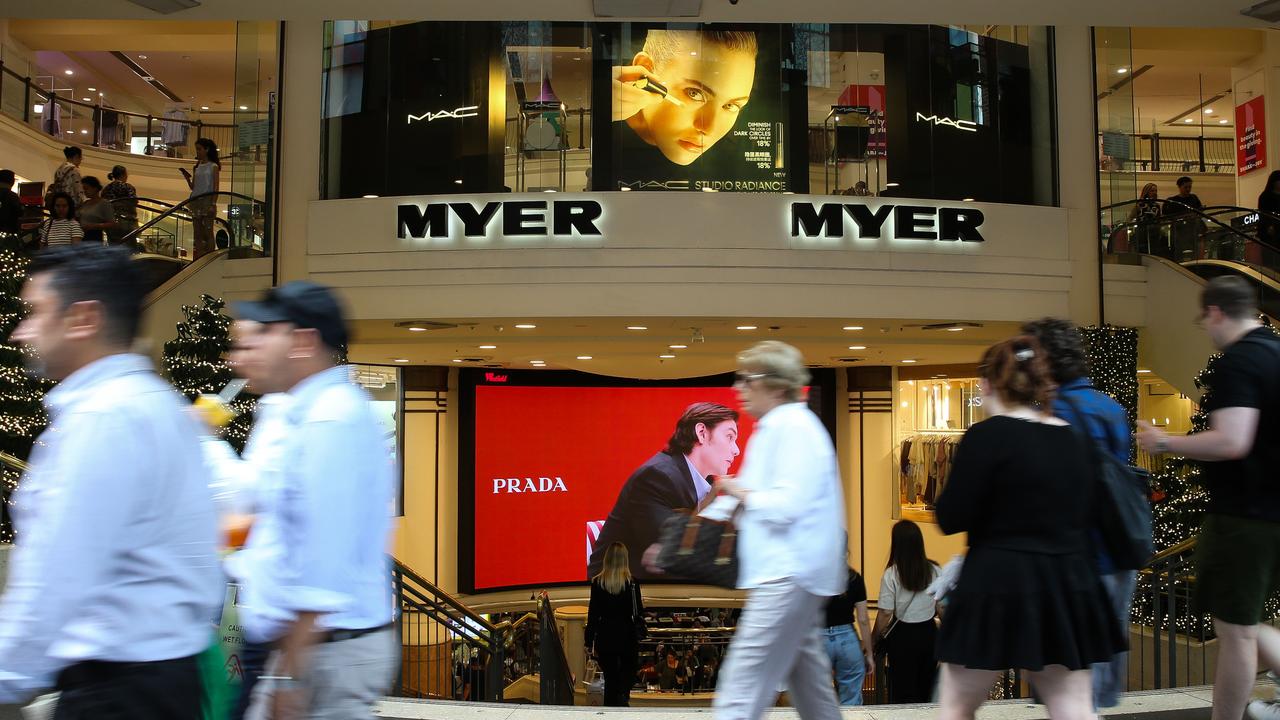
Business
Don't miss out on the headlines from Business. Followed categories will be added to My News.
A major decision is coming up for Myer shareholders ahead of a next week’s vote on the $800m-plus merger with Solomon Lew’s domestic apparel brands built around Just Jeans.
And that’s about what is the right price to pay for a retailing business where profits are being crunched.
Both Myer and Premier issued simultaneous profit warnings following sluggish sales spanning the all-important Black Friday and Christmas period across both retailers. And this triggered a sharp share sell off across the two.
The drop has even bigger implications for Myer just weeks out from its high-stakes merger vote. The rare profit warning from Premier shows the sluggish economy is starting to bite its core Australian brands such as Just Jeans, Portmans and Dotti.
These same brands are about to become part of Myer and the department store is preparing to pay up big for them.
The warning, and subsequent share price slide has an unusual knock-on effect on the value of the planned deal.
The lower the Myer share price, the cheaper Lew’s Apparel Brands becomes.
However, the very reason Myer’s shares lost a whopping 23 per – cent which is out of proportion with the modest sales miss – is that suddenly there’s a realisation Myer shareholders could be buying a collection of retail brands with 800 stores that are more vulnerable than previously thought to an economy stuck in the slow lane.
Myer too has little experience in running direct and mass-retail brands.
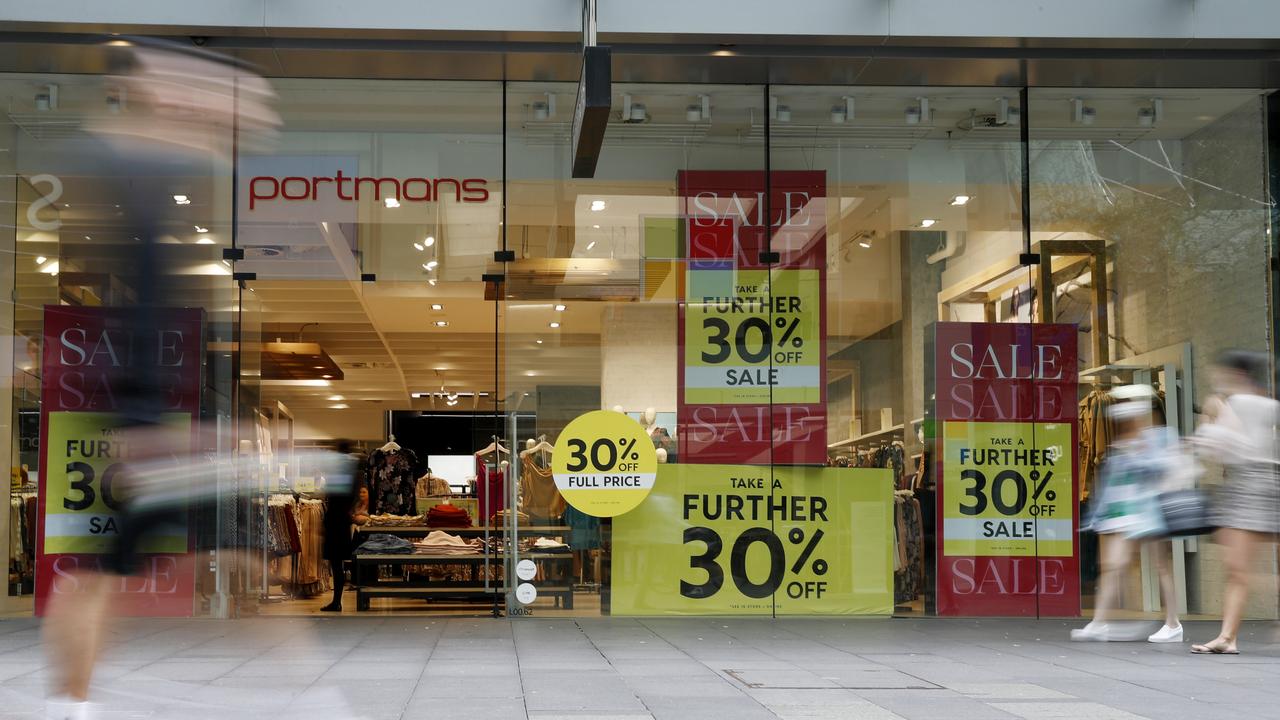
Last month, independent expert Kroll declared the deal fair and reasonable, and determined the combined Myer and Apparel Brands group should carry a valuation in the range of 92.5c to $1.195. Myer’s shares on Monday closed at just 88c each.
This is the market’s way of putting serious doubt about the earnings power of the two businesses coming together.
For a long time Myer has been the weaker performer of the two retailers, but Monday’s share price fall suggests that equation is starting to flip.
Lew’s Premier Investments, the owner of the Apparel Brands business, by comparison fell 16 per cent to $27.78. Even if earnings are soft across Just Jeans and Portmans, the powerhouse Peter Alexander brand (which is not being folded into Myer) would continue to support momentum.
Under the terms of the merger deal, Myer will issue 890.5 million new shares to Lew’s Premier Investments in return for brands like Just Jeans, Dotti and Portmans to be folded into the department store. The new shares will be immediately spun out to Premier Investment shareholders.
The deal then effectively becomes a reverse takeover, with Myer shareholders holding 48.5 per cent of shares in the enlarged Myer-Just Jeans retailer, while Premier shareholders will own 51.5 per cent through a direct distribution. Following the deal, Lew’s private vehicle, Century Plaza, will emerge with 26.8 per cent.
Kroll had assessed value of the equity in Lew’s Apparel Brands’ operating business at between $848.3m to $946.3m – including the cash that comes with it. Meanwhile vale of the shares to pay for it would come somewhere in the range of $823.7m to $1.064bn.
At Myer’s current share prices the implied value of the business is a little less than $800m – a relative steal compared to when its shares were trading at around $1.15 in the past two weeks, giving the deal a value of $1.04bn. In both cases Premier’s shareholders still stand to get the same proportion of Myer for the portfolio of apparel brands.
Kroll noted the break-even Myer share price at which the combination starts to lose its fairness lustre is $1.06 and above. And the top end where Myer investors risked overpaying was $1.195.
Slowdown bites
Even with values moving around, the respective profit warnings show the long tail of the slowdown and cost-of-living issues are really staring to bite.
Lew’s Premier Investment was the hardest hit in sales through from the all important Black Friday with first-half underlyings earnings of its Apparel Brands business expected to be off as much as 36 per cent from the first half of last year, raising questions among some as to why Myer is paying up to get bigger on proprietary fashion brands at a time when the market is turning down.
Official figures released last week show retail sales in November increased a softer-than-expected 0.8 per cent. That figure also took in the Black Friday sales.
Lew’s Premier said in a statement: “Retail conditions have remained challenging through the first half of 2025 with customers continuing to experience cost-of-living pressures across all of Premier retail’s global markets and having a strong focus on value.”
Critically, Premier said its profit margin was unchanged.
Myer, meanwhile, warned that first-half profit was likely to be down 25 per cent with sales impacted by “challenging macroeconomic conditions”. Myer also had its earnings hit by unexpected ramp-up costs in the opening of a new national distribution centre in Melbourne’s west.
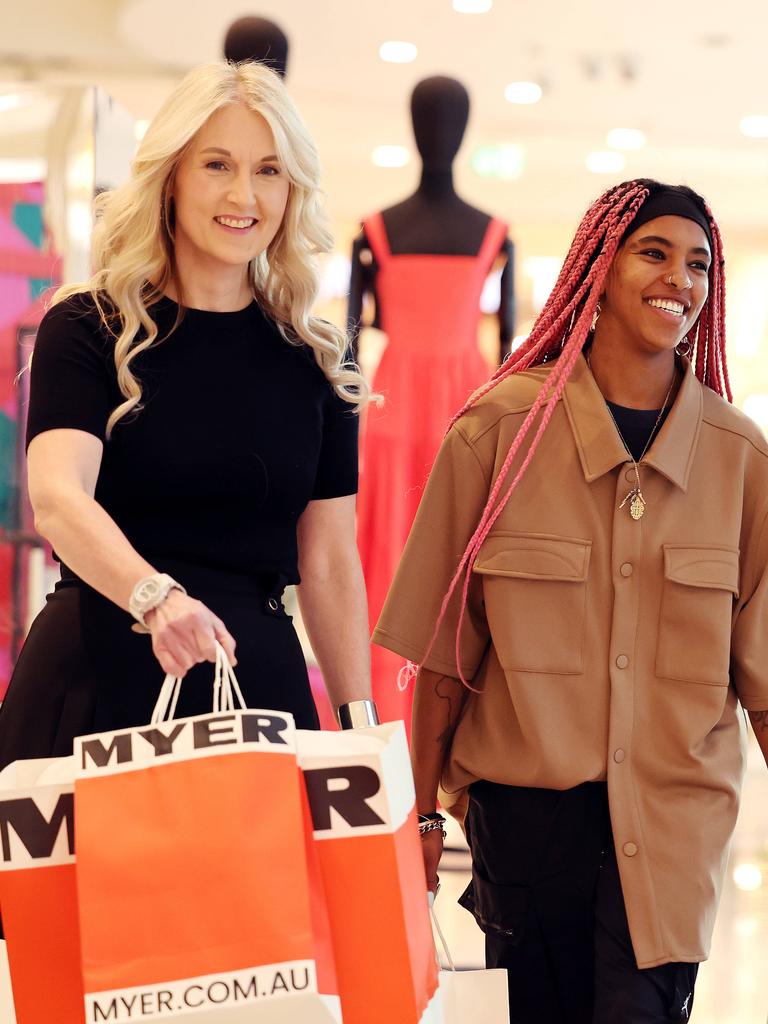
Despite the worrying slowdown in the Just Jeans to Portmans stable, supporters of the merger deal are likely to argue the tougher times highlights the need for the retailers to be more aggressive on costs.
Under the planned tie-up, the merged Myer and Apparel Brands are expected to return more than $30m in annual synergies with savings in warehousing, distribution and sourcing of clothing.
At the same time, Myer’s well-regarded loyalty scheme, MyerOne, will be rolled out to millions more customers, helping to drive sales into Just Jeans and beyond.
Finally, Lew’s brands run at a much higher sales margin – with this the focus every step of the way from design to the moment a garment is sold in the shop. Any uplift that Myer stands to get from its current skinny margins by using some of the best practices of retailing, will fall straight to the bottom line.
Fundamentally, the valuation remains all on paper but the real difference will be getting a determined retailer like Solomon Lew driving Myer after years of stalking the business.
Myer told shareholders it is committed to the merger, arguing it will deliver a “step change” in market position and generate substantial strategic and financial benefits.
Myer’s independent directors continue to recommend the merger, the retailer added.
Shareholders will vote on the merger on January 23. If the deal goes ahead, the new retailing entity will trade from early February.
eric.johnston@news.com.au
Originally published as For Myer, Solomon Lew’s Premier merger now hinges on a question of fairness


